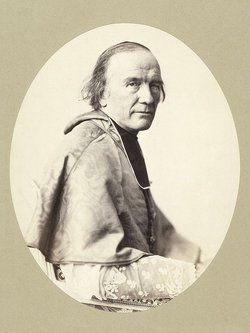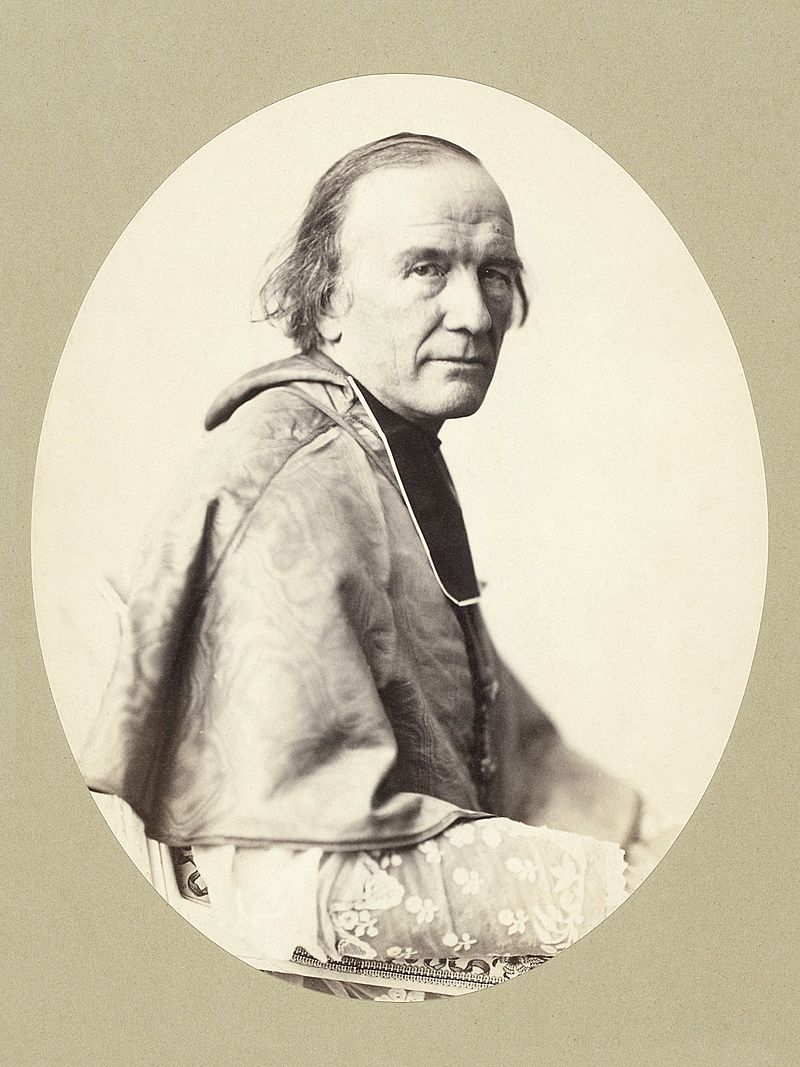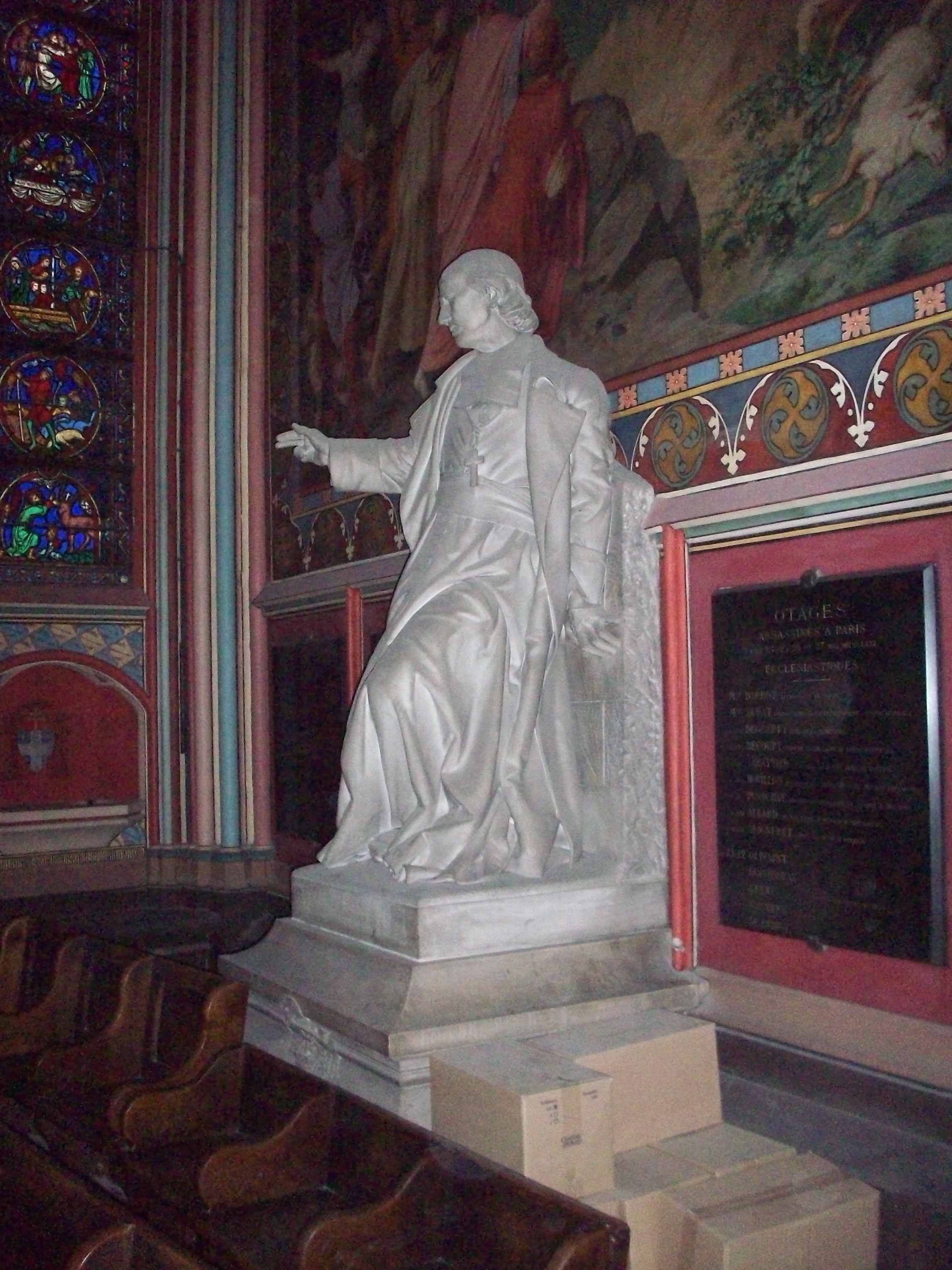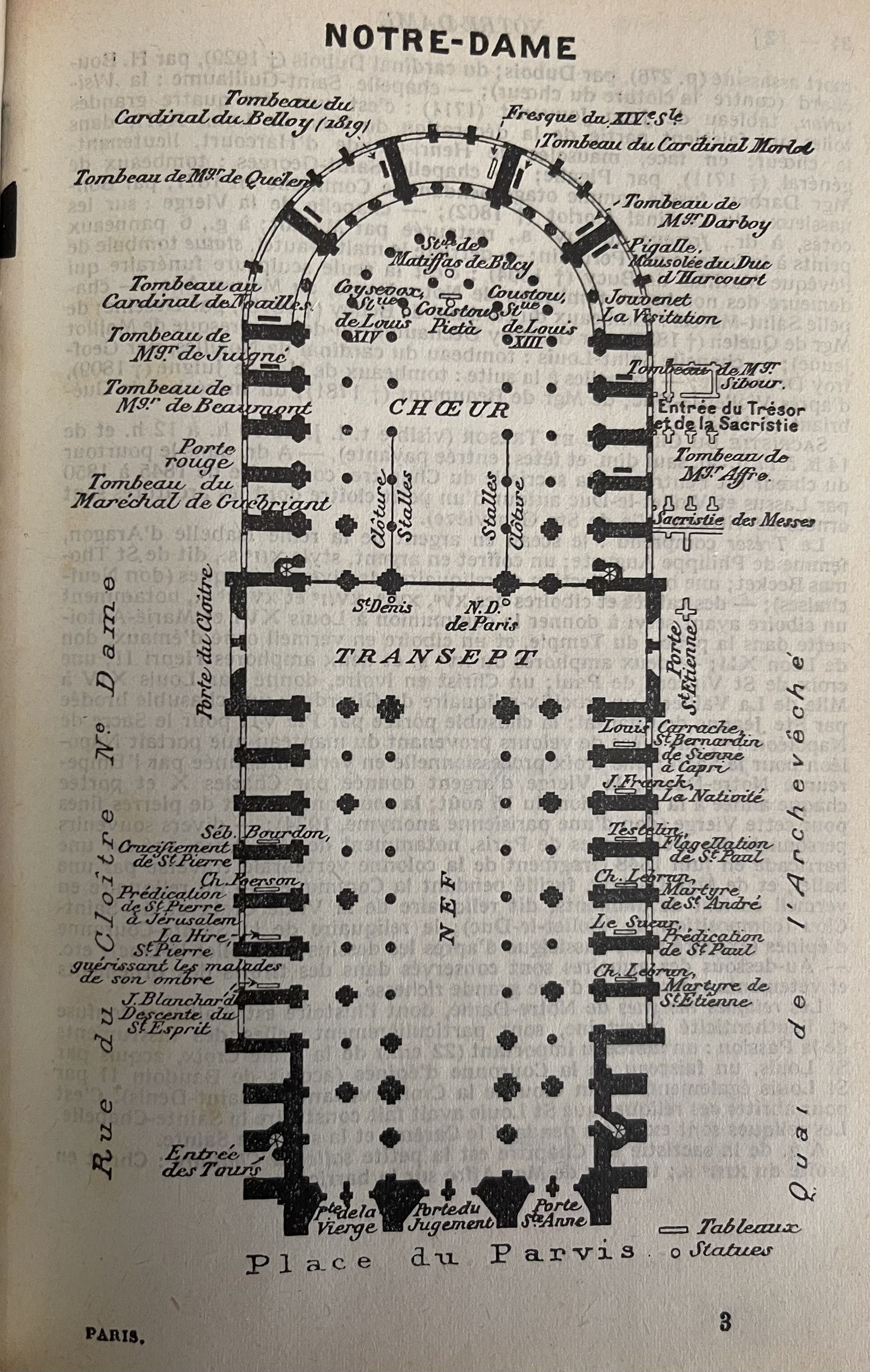Georges Darboy (16 January 1813 – 24 May 1871) was a French Catholic priest, later bishop of Nancy then archbishop of Paris. He was among a group of prominent hostages executed as the Paris Commune of 1871 was about to be overthrown.
Biography [edit]
Darboy was born in Fayl-Billot, Haute-Marne in north-east France. He studied with distinction at the seminary at Langres, and was ordained priest in 1836. Transferred to Paris as almoner of the college of Henry IV, and honorary canon of Nôtre Dame, he became the close friend of Archbishop Affre and of his successor Archbishop Sibour. He was appointed bishop of Nancy in 1859, and in January 1863 was raised to the archbishopric of Paris. Darboy was a strenuous upholder of episcopal independence in the Gallican sense, and involved himself in a controversy with Rome by his endeavours to suppress the jurisdiction of the Jesuits and other religious orders within his diocese. Pope Pius IX refused him the cardinal's hat, and rebuked him for his liberalism in a letter which was probably not intended for publication.
He is also known for his opposition in 1868 to Jacques-Paul Migne, forbidding him to continue his low-cost books business after the burning of his printing establishment, and suspending him from his priestly functions.
At the First Vatican Council he vigorously maintained the rights of the bishops, and strongly opposed the dogma of papal infallibility, against which he voted as inopportune. When the dogma had been finally adopted, however, he was one of the first to set the example of submission.
Immediately after his return to Paris the war with Prussia broke out, and his conduct during the disastrous year that followed was marked by a devoted heroism which has secured for him an enduring fame[citation needed]. He was active in organizing relief for the wounded at the commencement of the war, remained bravely at his post during the siege, and refused to seek safety by flight during the brief triumph of the Paris Commune[citation needed].
On 4 April 1871, he was arrested by the communards as a hostage and confined in the prison at Mazas, from which he was transferred to La Roquette on the advance of the army of Versailles. On 24 May he was shot within the prison along with several other prominent hostages. The execution was ordered by Théophile Ferré. He died in the attitude of blessing and uttering words of forgiveness. His body was recovered with difficulty, and, having been embalmed, was buried with imposing ceremony at public expense on 7 June.
Darboy was the third archbishop of Paris to die violently between 1848 and 1871.
Darboy was the author of a number of works, of which the most important are a Vie de St Thomas Becket (1859), a translation of the works of St Denis the Areopagite, and a translation of the Imitation of Christ.
Georges Darboy (16 January 1813 – 24 May 1871) was a French Catholic priest, later bishop of Nancy then archbishop of Paris. He was among a group of prominent hostages executed as the Paris Commune of 1871 was about to be overthrown.
Biography [edit]
Darboy was born in Fayl-Billot, Haute-Marne in north-east France. He studied with distinction at the seminary at Langres, and was ordained priest in 1836. Transferred to Paris as almoner of the college of Henry IV, and honorary canon of Nôtre Dame, he became the close friend of Archbishop Affre and of his successor Archbishop Sibour. He was appointed bishop of Nancy in 1859, and in January 1863 was raised to the archbishopric of Paris. Darboy was a strenuous upholder of episcopal independence in the Gallican sense, and involved himself in a controversy with Rome by his endeavours to suppress the jurisdiction of the Jesuits and other religious orders within his diocese. Pope Pius IX refused him the cardinal's hat, and rebuked him for his liberalism in a letter which was probably not intended for publication.
He is also known for his opposition in 1868 to Jacques-Paul Migne, forbidding him to continue his low-cost books business after the burning of his printing establishment, and suspending him from his priestly functions.
At the First Vatican Council he vigorously maintained the rights of the bishops, and strongly opposed the dogma of papal infallibility, against which he voted as inopportune. When the dogma had been finally adopted, however, he was one of the first to set the example of submission.
Immediately after his return to Paris the war with Prussia broke out, and his conduct during the disastrous year that followed was marked by a devoted heroism which has secured for him an enduring fame[citation needed]. He was active in organizing relief for the wounded at the commencement of the war, remained bravely at his post during the siege, and refused to seek safety by flight during the brief triumph of the Paris Commune[citation needed].
On 4 April 1871, he was arrested by the communards as a hostage and confined in the prison at Mazas, from which he was transferred to La Roquette on the advance of the army of Versailles. On 24 May he was shot within the prison along with several other prominent hostages. The execution was ordered by Théophile Ferré. He died in the attitude of blessing and uttering words of forgiveness. His body was recovered with difficulty, and, having been embalmed, was buried with imposing ceremony at public expense on 7 June.
Darboy was the third archbishop of Paris to die violently between 1848 and 1871.
Darboy was the author of a number of works, of which the most important are a Vie de St Thomas Becket (1859), a translation of the works of St Denis the Areopagite, and a translation of the Imitation of Christ.
Advertisement
Records on Ancestry
Sponsored by Ancestry
Advertisement




